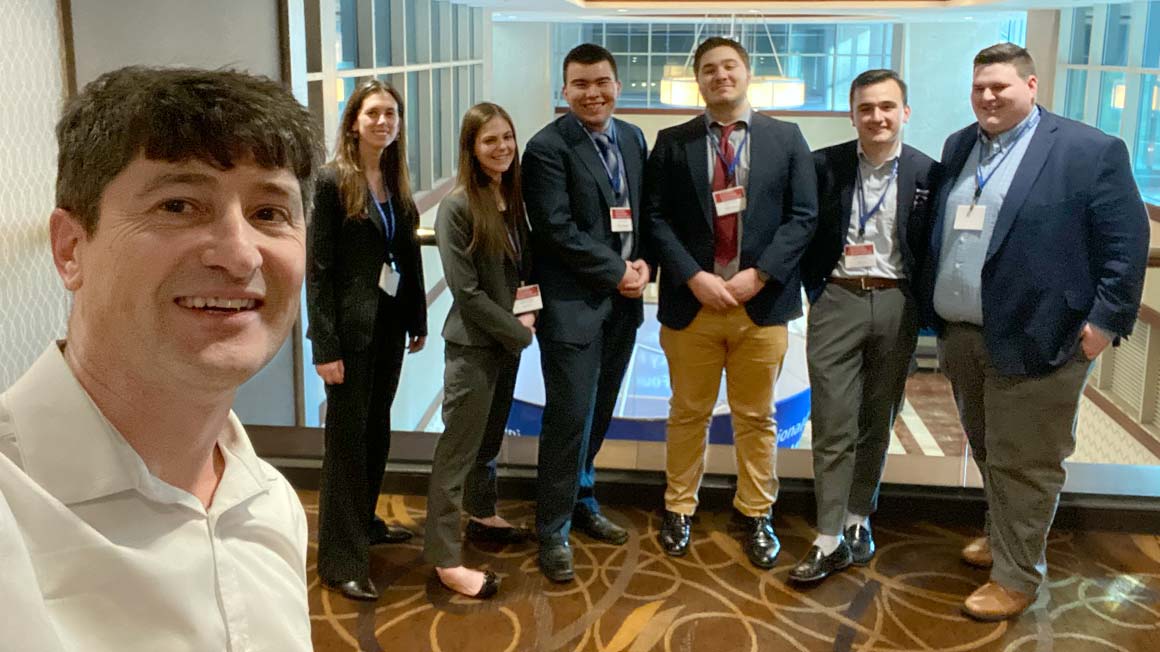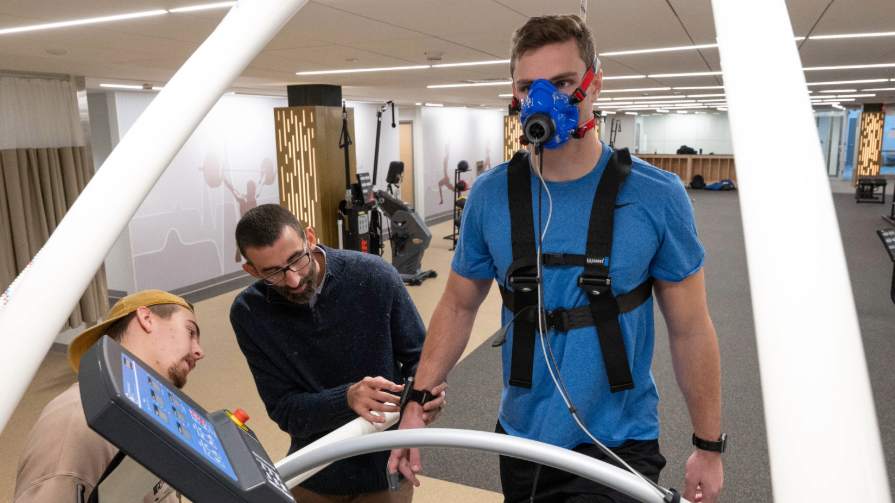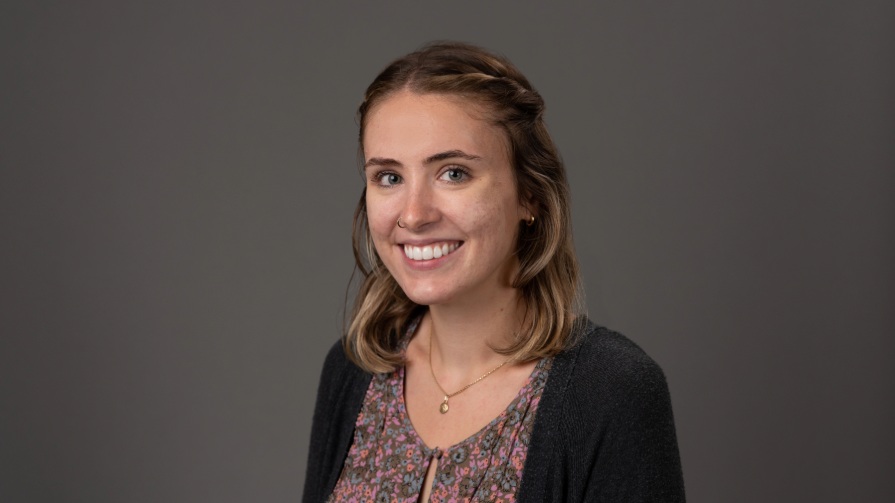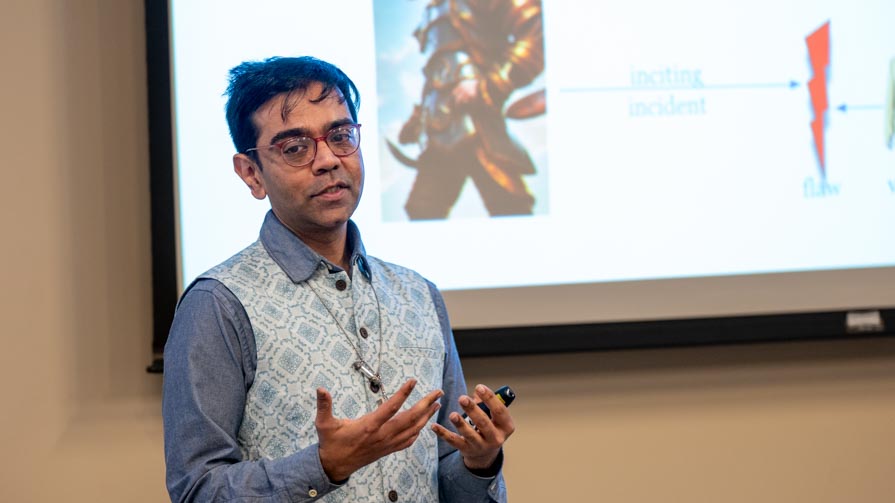For five Bryant University Economics students, the 2020 Eastern Economic Association Conference was an opportunity to explore the broader economics community and share their research. With a variety of panels, presentations, and discussion sessions looking at a range of issues from diverse viewpoints, the event offered students the perfect place to expand their understanding of their field.
“Attending conferences is a phenomenal way for students to broaden their horizons and network with other students and professors from other institutions, as well as industry professionals,” says Professor of Economics Edinaldo Tebaldi, Ph.D. who, alongside Economics Lecturer Alison Shwachman Kaminaga, Ph.D., accompanied the students. “They can make connections that could lead to a job, or a recommendation, or an opportunity.”
It’s also an important way to hone communication skills, he says. “I think the biggest challenge that people who do complex work have is communicating what they have learned,” says Tebaldi. “Unless you can articulate your thoughts, your idea, and your recommendations, you won't be able to reach anybody. Presenting at a conference allows students to organize and express their views and share their work with a wider audience – as well as receive invaluable feedback.”
"Taking a course with Professor Tebaldi already put us ahead of the game.”
Sharing their work
Attending the Eastern Economic Association Conference was a first for Lloyd Ellison ’20, co-presenter of a project on using machine learning to predict recessions. He expected the conference experience to be intense, but discovered that "it's really just a lot of people who love economics and want to share their work and learn more.”
His professor worked closely with him and his partner to prepare for presenting at a professional event. "Taking a course with Professor Tebaldi already put us ahead of the game in a lot of ways,” says Ellison. “Learning how to share our work was a big part of the class." When Tebaldi offered the opportunity to present at the conference, Ellison jumped at the chance to develop his research and his presentation skills.
The preparation led to a smooth presentation. "Once we got rolling, it felt really good and we got really strong feedback," says Ellison. “From the audience’s questions, it felt like they were interested in our work.”
“You have to have a strong understanding of the data, everything you did for the project, and the rationale for the choices you made.”
Preparing for the hot seat
“Presenting your work puts you in the hot seat and forces you to be comfortable with your research,” notes Hannah Sheldon ’20. Sheldon presented two papers on unemployment analysis and co-presented a third co-authored with Kaminaga on the impacts of land and home ownership and titling on intimate partner violence in Sub-Saharan Africa.
Sharing and defending research, she says, requires you to ensure an airtight analysis. “You have to have a strong understanding of the data, everything you did for the project, and the rationale for the choices you made,” she notes. “You develop a better understanding of your own work than if you had just published a paper.”
Sheldon, who is preparing her co-authored paper for publication, says presenting also allows you to get a new perspective. “It’s a great way to check your research with experts who are also working in your field,” says Sheldon. “It's helpful to be among like-minded people who know your topic and can provide insightful feedback.”
Having the opportunity to present alongside a mentor was an added bonus. “It was really cool to be able to co-present a paper with one of my professors. One of my favorite parts of the research we did was that she always treated me as a real co-author. She really values my opinion.”
An introduction to a wider community
“With my project, I tried to make economics accessible to people."
"The conference was especially helpful for us because it introduces students to a wider community,” says Anthony Murray ’20, who presented his Honors thesis analyzing how millennials consume alcohol in comparison to other generations. ”I think it's good to have that kind of consortium, especially at the undergraduate level. I made many more contacts than I expected to.”
He also valued the exposure to the variety of research projects. “When most people think of economics, they just imagine endless supply-and-demand graphs,” Murray chuckles. He was impressed with the range of ways in which researchers applied economic tools and theories, analyzing subjects ranging from Tony Award winners to country music to mixed martial arts.
“With my project, I tried to make economics accessible to people,” says Murray. “Seeing all of those other projects, I knew I wasn't alone in that desire.”
Presentation skills boost student confidence
For Michael Matkowski ’21, who was the only Bryant junior to attend, the conference provided a glimpse of the future. He plans to go on to graduate school, “conducting research and teaching in the field,” he notes. “Presenting my findings and teaching people about emerging areas within economics is something I want to continue doing in my career.
The conference, he says, gave him confidence that he would be ready for life after college. “I found that my time at Bryant and the guidance provided by Professor Tebaldi prepared me for this experience –and to excel beyond the traditional academic setting,” he states.
“This conference provided me with an excellent opportunity to obtain real experience in the field and communicate my research to a wider audience,” says Matkowski, who shared his research into how machine learning can be used to predict labor force participation. “Having this experience as a junior was an invaluable opportunity."
“If you love your field – and that's something that Bryant, I think, emphasizes very well, loving what you do – you're always excited by the prospect to do more.”
Research that matters
A side benefit of presenting at the conference, Tebaldi notes, is that it can boost students' confidence in their projects as well as their abilities. “They not only see what others are doing but they can benchmark themselves,” he notes. ”What I heard from these students is, ‘Wow. These other presenters have done something really cool – but my work is really cool as well.’”
For Ellison, that feeling of accomplishment began to surface as he prepared for the conference. “My partner made some graphs showing our work that expressed our research in a way that numbers alone couldn’t quite convey,” he says. “And when I looked at those graphs, I thought ‘wow, this is more meaningful than I originally thought it was.’”
“If you love your field – and that's something that Bryant, I think, emphasizes very well, loving what you do – you're always excited by the prospect to do more,” says Murray, who estimates that he’s spent more than 300 hours working on his project. “That’s what this conference was: an opportunity to learn more, do more, and do better.”






